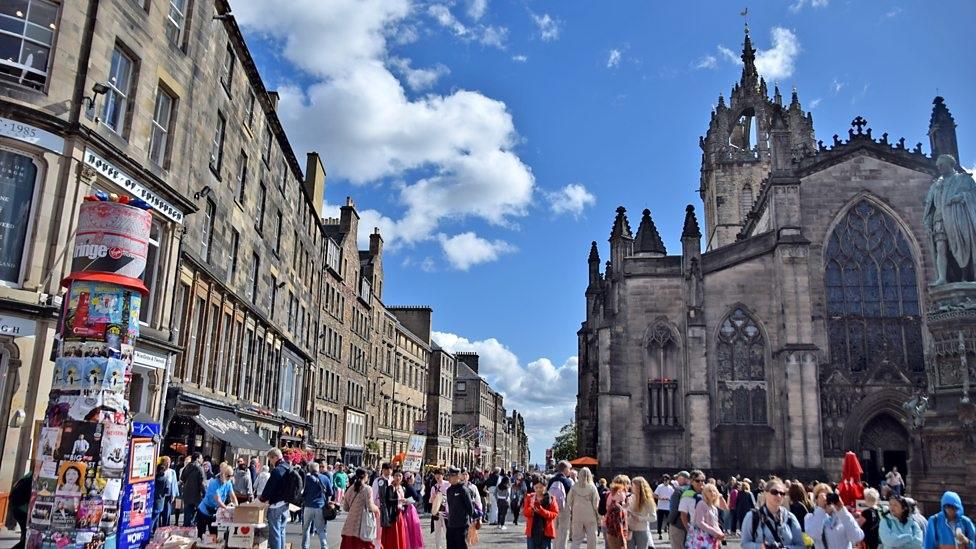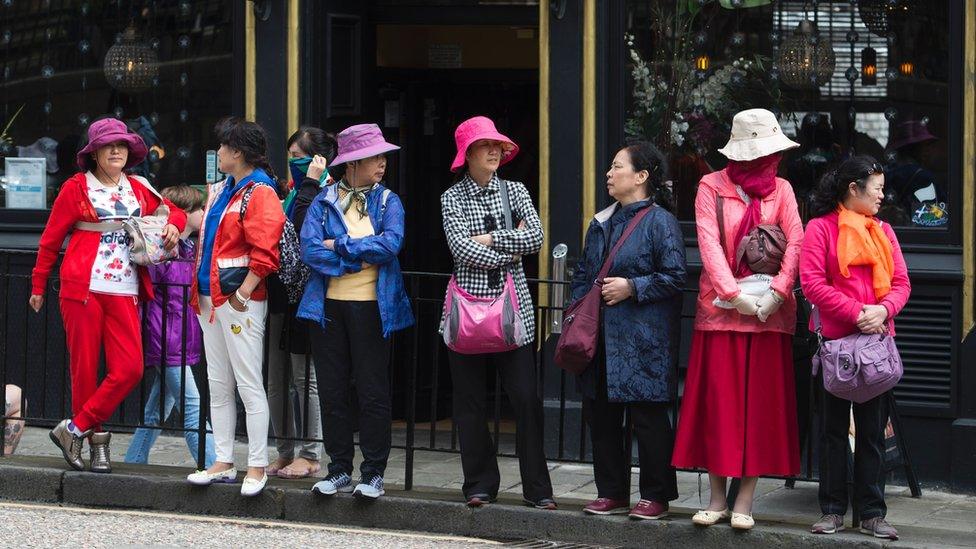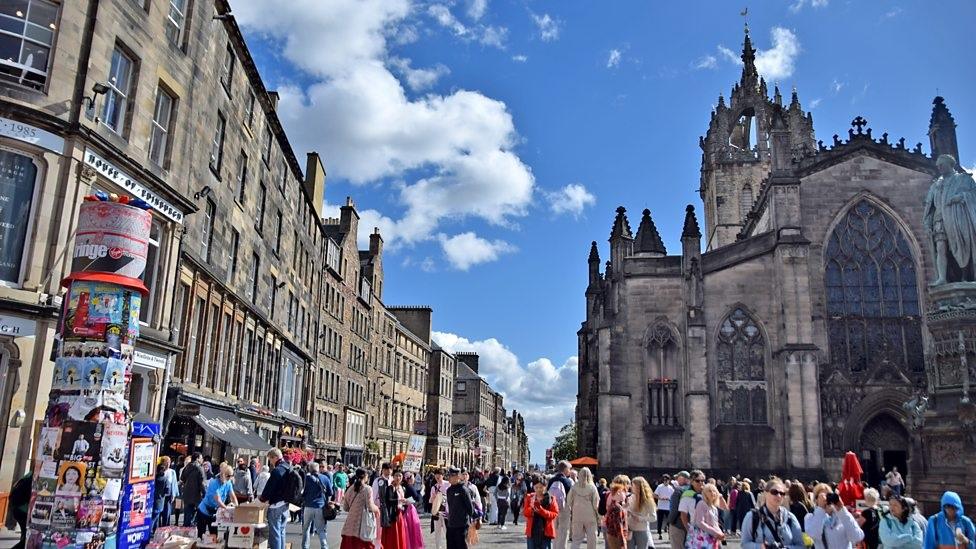Tourist tax: Holidays in Scotland could cost extra
- Published
- comments

Research found that a small nightly charge would not deter visitors from going to Edinburgh
Tourists could be charged extra for holidaying in Scotland.
Legislation to give local authorities the power to apply a visitor levy, or "tourist tax" has been published.
If passed by MSPs, it will give councils the ability to add a tax to overnight accommodation, based on a percentage of the total costs.
Edinburgh said its proposals included a £2-per-night charge added to the price of any room for the first week of a stay.
Councils will have to consult with local communities, businesses and tourism organisations before going ahead with the charge and it is expected the charge could be introduced by 2026.
Local authorities would also have to consult on where the proceeds of the levy would be spent before the tax is introduced officially.
The Scottish government said that all funds raised must be reinvested into the local community, on facilities and services used by visitors, benefiting the local area and economy, and enhancing the tourist experience.

The plans are part of the new deal for local government, external which aims to give local authorities more financial flexibility.
Tom Arthur, Public Finance Minister, said that Scotland is already a "very popular tourist destination" and visitors have a "significant and positive" impact on the Scottish economy.
"Giving councils the power to introduce a visitor levy is one tool that will provide additional resources to continue to attract visitors to Scotland," he said.
Key principles for the tax are that it is:
Fair to industry, residents and tourists
Simple to understand and run
Administratively efficient and difficult to avoid
To raise additional income and be transparently invested
And it must have transparent governance and accountability
Cammy Day, leader of City of Edinburgh Council, said the visitor levy was much needed-and was a common practice around the world.
He said: "We're very proud that Edinburgh is one of the world's most popular visitor destinations, but we're equally aware that this success comes at a cost.
"That's why we believe it's right to ask visitors to make a small contribution to help us sustain and improve our tourism offer while managing its impact, and why we've been a key driver working with Cosla and the Scottish government to see this legislation brought forward.
"A visitor levy is common practice in other major cities and destinations so why not here, in the place named 'best city in the world' to visit by Time Out magazine?"
He added that a citywide consultation held in 2018 found the proposals gained overwhelming backing from Edinburgh's residents, businesses and attractions as well as the majority of accommodation providers.
All of Scotland's 31 other local authorities have backed calls for the powers necessary to implement a Transient Visitor Levy.
Highland Council, which has discussed a local tax for a number of years, has welcomed the Scottish government's announcement.
Raymond Bremner, Highland Council leader, said: "The introduction of the bill is good news and means we can now plan for the introduction of this local levy following approval of the bill by parliament."
The tourist tax would apply to hotels, hostels, guest houses, B&Bs, self-catering accommodation, camping sites and caravan parks, as well as boat moorings and berthings.
It also covers accommodation "in a vehicle or on board a vessel" which is permanently or mostly housed in one place, and any other place where a room or accommodation is offered that is not the visitor's "only or usual place of residence".
- Published7 February 2019

- Published26 September 2018
